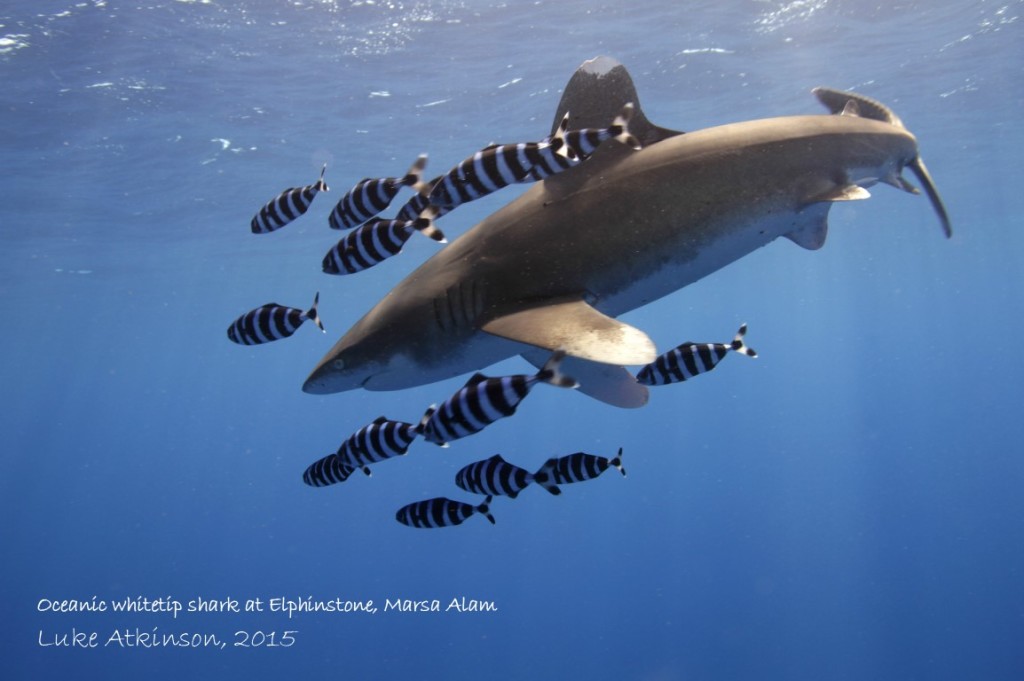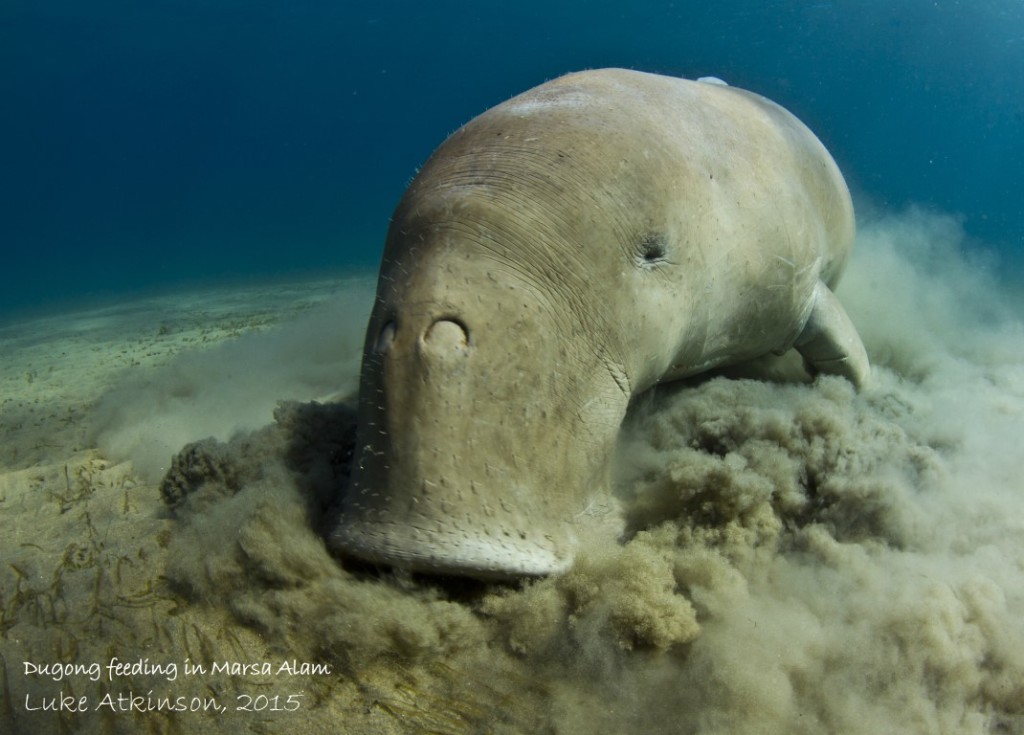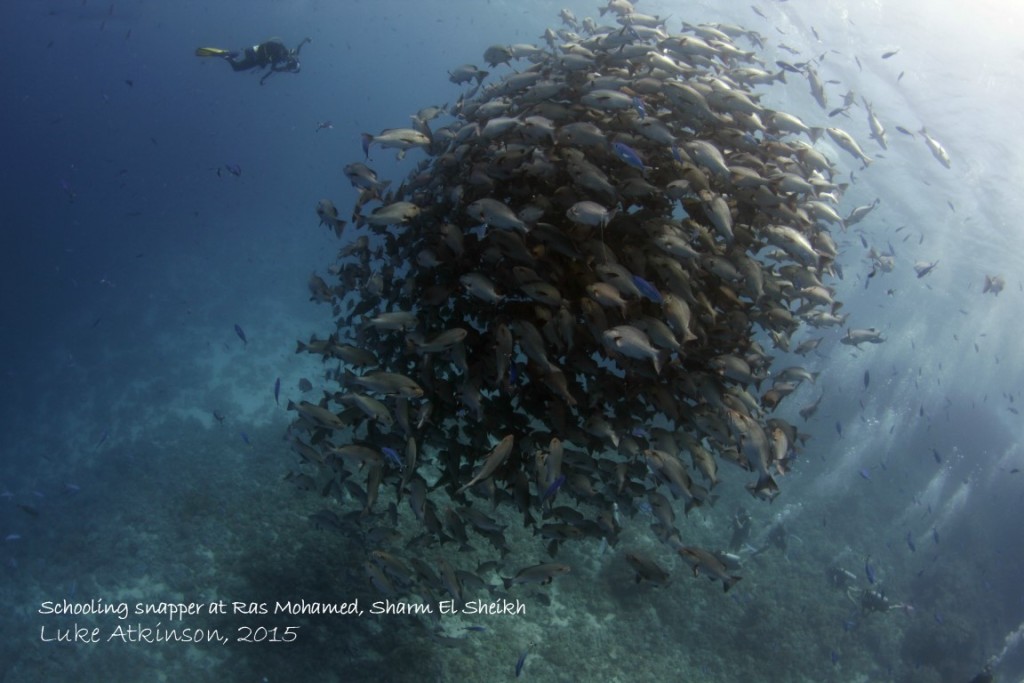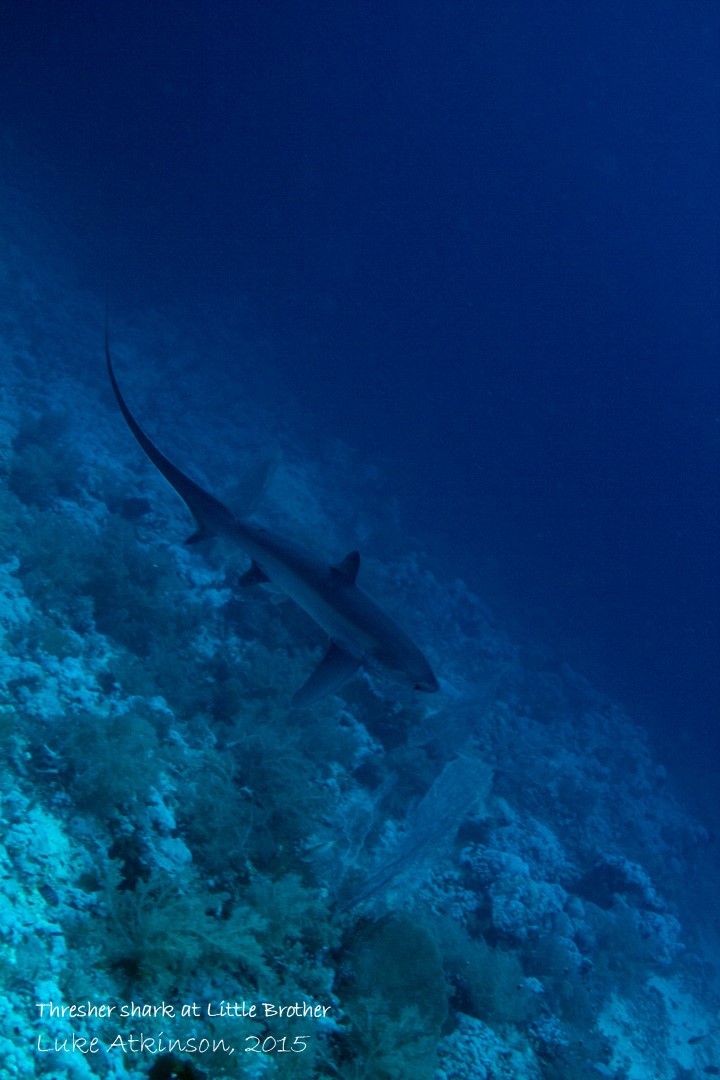Emperor Divers’ Regional Area Manager, Luke Atkinson, spells out the reality of safety in the Red Sea
I’m an ex-pat, which is a posh way to say immigrant, and have been for the past seven years. I like the quiet life, so as soon as I set eyes upon Port Ghalib on the south of Egypt’s Red Sea coast, I knew it was where I wanted to call ‘home’. It has a small community, a smattering of bars and restaurants and a very simple landscape of vast yellow desert and even vaster blue sea. It is such a sleepy place, that in my seven years the most threatening thing to have happened was a brief dust up between a few dive guides and a couple of amateur boxers in (the once popular but now closed) TGI Fridays. And a donkey once gave me a peculiar look. Frightening stuff.
You’ll know Port Ghalib if you’ve been on one of the many liveaboards that depart from here, often going to Brothers Islands or Daedalus and occasionally further south. Or, you’re one of the relatively few divers that have been this far south on a land-based trip. For those that don’t know, it is a small private, modern development right next to Marsa Alam airport (RMF), almost exactly 200km South of Hurghada (HRG). It has never been inundated with holidaymakers, mainly because the airport does not receive many flights (only one per week from the UK) but divers have usually been savvy enough to find a way down via Hurghada. Those that come are rewarded with exceptional coral reefs, regular sightings of the rare dugong, and pelagic encounters on famous reefs like Elphinstone.
I came to Egypt in early 2009 to begin my career as a Dive Instructor having cut my teeth part time in the UK as a Divemaster (playing dead in the corners of Stony Cove, waiting an age for the next Rescue Diver student to locate me and inevitably flood my drysuit with icy water while they grappled me to the surface). The full time job paid the bills but the diving was what I lived for and so the opportunity to combine the pleasure with the pay was too much to resist – quit boring job, rent out apartment, store possessions, pack bags, go. Oh, and bring the missus.
Since 2009, I have seen three major news items hit the TV about this country, each one rocking the tourism industry; the Arab Spring of 2011, the ouster of the Islamist presidency of summer 2013 and most recently the plane incident on Sinai in October 2015. I’m not even going to include that recent (January 2016) nonsense in Hurghada that should have barely made national news, let alone front page international “news” (I’m being kind to the Daily Mail there). Thankfully for the latter incident, the Foreign Office and credible news outlets waited for the facts to come out before splashing their opinions all over the place, and rightly ignored it as the scuffle it was. So back to the three major incidents, and how I viewed them as a resident and insider. Not surprisingly, I saw events unfold in the exact same way most Brits would have, namely clutching a cold beer and watching the TV. Probably the only difference being I was wearing flip flops and shorts.
Cairo is a long, long way away from the Red Sea, the closest resort being Hurghada at a mere 280 miles or so, Marsa more like 400. I know this, as I recently had to travel there to go and see Star Wars: The Force Awakens (hey, I was born in 1978 and I’m called Luke – what choice do I have?). My options were either a seven-hour car journey or a one-hour flight, hardly next door. So to be worried about whether events in Cairo would spill over, while sitting in a bar in a Red Sea resort, would be like someone in Seahouses (if you’ve not been there, you haven’t done some of the best UK diving on offer!) worried about the London rioters knocking on their door in August 2011. For those who worked in the Egyptian diving industry during these events, the worry was never safety. I never saw a thing firsthand that would have told me anything was amiss in Cairo. The worry was, and still is today, what will be the impact on the number of divers coming out?
The latest incident regarding the plane downing in Sinai late last year caused a response by the Foreign Office to put flights into and out of Sharm on hold, while the cause was investigated alongside a review of Egyptian airport security. The effect on Sharm has been colossal with many hotels and some dive centres closed at least temporarily whilst some have packed up for good. It’s a little bit difficult to watch and this well written article in the Gulf news by a British journalist makes some very good points about the scale of the reaction to that incident and even has a poll at the end (you have to pick an answer to see the result), which shows to me that most people really do have their heads screwed on right: http://gulfnews.com/opinion/thinkers/egypt-s-tourism-industry-battered-unfairly-1.1655842
It’s difficult for those who have never been to the Red Sea before to visualise the Egyptian Red Sea as a peaceful and welcoming place since the media has inevitably tarred the whole of Egypt with a very large brush. I’m sure those that have been before know, when they stop to think, that a trip to Sharm, Hurghada or Marsa Alam would be safe but are still maybe hesitating. We are very good at focusing on ourselves and our own (sometimes inaccurate or misled) intuitions instead of facts; it’s for that reason for example that people often find it difficult to intuit that in any 23 random people, there is a greater than 50% chance that two share the same birthday. It’s true, look it up. And so it is, if you find yourself hesitating about an upcoming Red Sea dive trip, it’s the misleading part of your intuition at work.
The facts about the Red Sea are clear. It is the closest warm water coral reef diving to the UK at five hours by plane. It is one of the best value diving destinations available to Brits. There are world class events to be seen such as the fish schooling of Ras Mohamed, as well as possible encounters with sharks, mantas, dolphins, dugong and turtles to name but a few. The visibility is usually a spectacular 30m+ and the water temperature ranges from 22C to 30C. There are wrecks of every shape and size to suit divers of all ability. There is a phenomenal tourism infrastructure, hotels of every class, liveaboard vessels, dive boats and transportation on hand everywhere. The diving is regulated and safe, with professional licensed outfits available in all the main resorts as well as a large network of hyperbaric chambers should one need. The local people are always hospitable and are especially welcoming to British nationals who traditionally have supported Egypt at times when other nationalities have not. And, most pertinently, it is safe to holiday here. As I said, I am sure most of you believe this deep down anyway but for those who don’t, just look at the Foreign Office advice https://www.gov.uk/foreign-travel-advice/egypt . Hurghada – green. Sharm El Sheikh – green. Marsa Alam – green. Even Cairo – green (which suited my cinema ambitions). They quote “Over 900,000 British nationals visit Egypt every year. Most visits are trouble-free”. The same is true for all the major European advices; Germany, France, Netherlands, Switzerland, Italy etc. I’m no mug; I wouldn’t live here if I doubted my safety.
Unsurprisingly the national response has not been covered in the international press as widely as the incidents themselves. Boring news does not sell papers. Egypt needs tourism; it is a huge and vital part of the country’s revenue. And so while I think you would have to go a long way to find someone in the Egyptian government who considers the sudden drop in tourism fair or justified, they have been forced to react positively. I bashed the Daily Mail earlier, so it’s only fair to include an article they ran somewhere in their back pages recently: http://www.dailymail.co.uk/wires/ap/article-3399945/Egypt-spend-32M-upgrading-tourist-resort-security.html . As well as an investment in resort security, there has been work behind the scenes on airport security. British government representatives have recently been over to Egypt and have voiced their approval at the decision to use an international private company, Control Risks, to audit and strengthen security at airports, although you have to dig very deep for this news http://allafrica.com/stories/201601210964.html.
Since Egypt also recently finalised their democratic government with the first session of parliament for three years, another British government delegation which was there to see the inaugural session, “affirmed they would recommend the resumption of British air flights to Sharm El Sheikh upon their return to the UK”, which again was hardly reported http://english.ahram.org.eg/NewsContent/1/64/181266/Egypt/Politics-/British-parliament-members-recommend-resumption-of.aspx
For you, the savvy diver, this is all good news indeed, albeit news you probably would not have seen. So, Egypt is safe as the FCO advises, yet it is spending significantly to further secure its resorts. Egypt has also shown a quick and welcomed response to improving airport security to eradicate the one ban that does currently apply at Sharm airport. Diving in Egypt in the past few years has just got better and better; 2015 must go down as one of the best ever, certainly in the past 10 years. Ras Mohamed had fish schools of epic proportion, Brothers, Daedalus and Elphinstone had near ever present shark sightings (hammerhead, whale shark, grey reef, thresher and oceanic whitetip to name a few) from May to December and even Rocky Island in the far south had tiger sharks for two months. It could be asserted that perhaps there were too many divers in the years leading up to 2011 with reports of overcrowding on popular reefs and wrecks and nowhere near as many pelagic sightings as we have had recently. Since the masses will be hesitating about coming to the Red Sea, there is an opportunity for savvy divers in 2016 to experience the resorts and diving like never before. Reefs should be uncrowded, deals should be plentiful, and the diving spectacular. You can book for Marsa or Hurghada right now and expect the Sharm airport situation to be resolved in time to allow summer (which is the prime time for the Ras Mo fish schooling) trips there.
There are no guarantees in life, but if you look at the facts rather than the tabloid tales they chose to sell papers and decide rationally rather than intuitively, then you will see that rather than thinking to give the Red Sea a miss for the time being, it is exactly the time to come and dive here. If you do, I’d love to share a cold beer with you. Bring your own shorts and flip flops.










